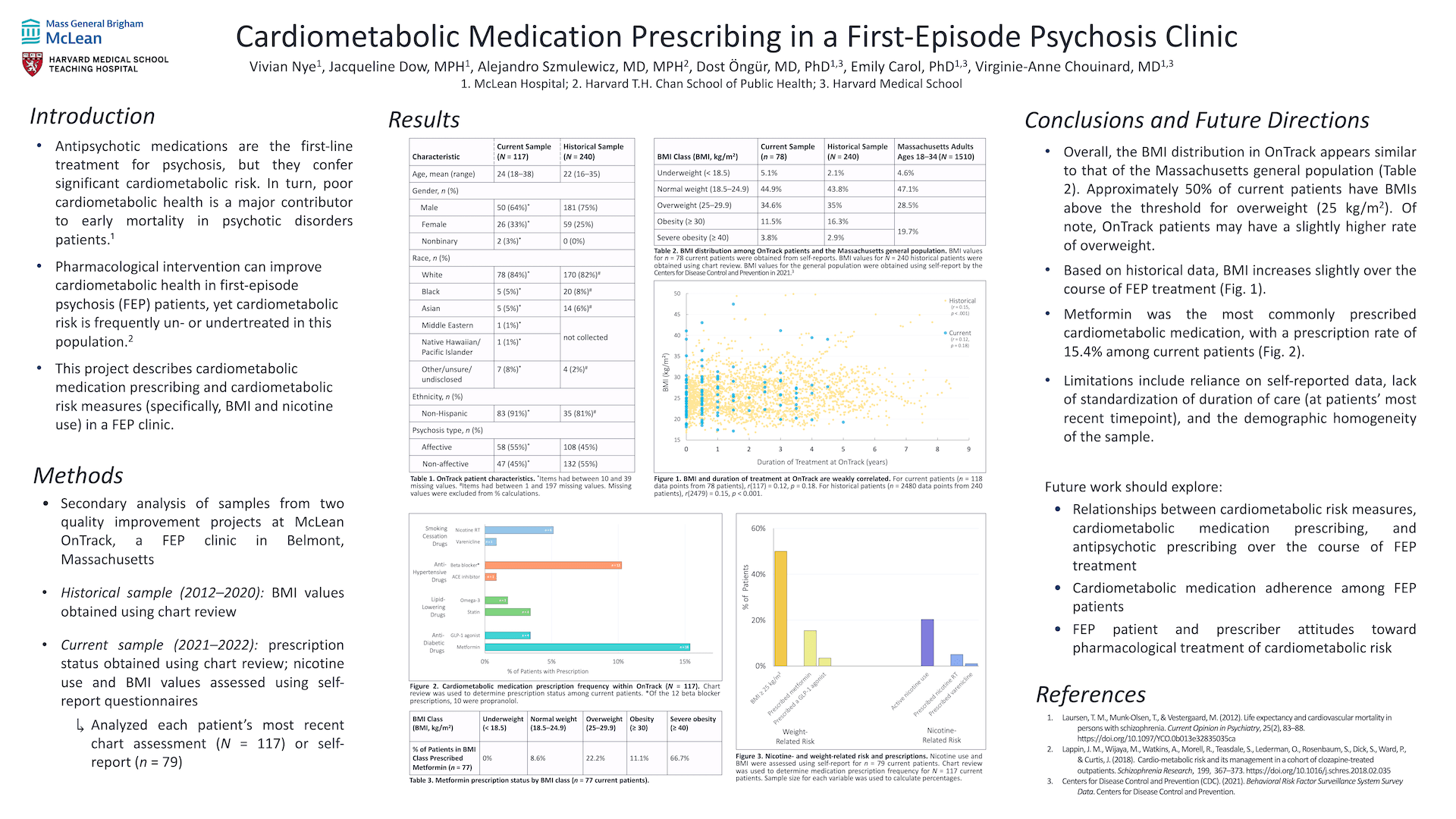Scientific Abstract
Background: Antipsychotic medications are the first-line treatment for psychosis, but they confer significant cardiometabolic risk. In turn, poor cardiometabolic health is a major contributor to early mortality in psychotic disorders patients. Pharmacological intervention improves cardiometabolic health in first-episode psychosis (FEP) patients, yet cardiometabolic risk is frequently un- or undertreated in this population. This project describes cardiometabolic medication prescribing and cardiometabolic risk measures in a FEP clinic.
Methods: A secondary analysis was conducted using samples from two quality improvement projects at McLean OnTrack, a FEP clinic in Belmont, Massachusetts. For the sample using historical patient data from 2012–2020 (N = 240 individuals), BMI was obtained using chart review. For the sample using current patient data from 2021–2022 (N= 117 individuals), prescription status was obtained using chart review, and nicotine use and BMI were assessed using self-report questionnaires.
Results: Approximately 50% of current patients have BMIs above the threshold for overweight (25 kg/m2). A weak positive correlation between BMI and duration of treatment at OnTrack was observed in the historical sample (r(2479) = 0.15, p < 0.001), with a similar but non-significant result in the current sample (r(117) = 0.12, p = 0.18). In the current sample, approximately 6% of patients were prescribed smoking cessation medication; 11% were prescribed antihypertensive medication; 5% were prescribed lipid-lowering medication; and 19% were prescribed antidiabetic medication. Approximately 20% of patients use nicotine regularly.
Conclusions: Overall, the BMI distribution in OnTrack appears similar to that of the Massachusetts general population, though OnTrack patients may have a slightly higher rate of overweight. Metformin was the most commonly prescribed cardiometabolic medication. The prevalence of overweight BMI and nicotine use appear to exceed prescription rates of antidiabetic and smoking cessation drugs. Overall, FEP treatment represents an important opportunity for early cardiometabolic intervention in order to minimize long-term risk.
Search posters

